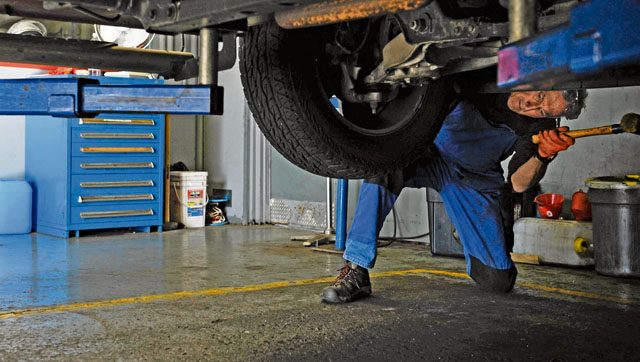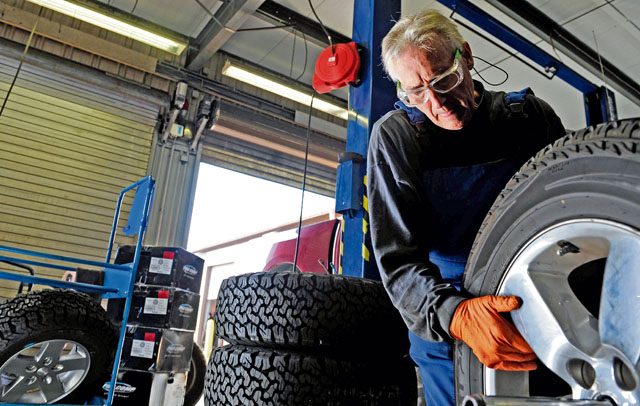
As cool autumn months become breezy winter days, Airmen are advised to continue practicing safe behavior by heeding pertinent safety tips when it comes to winter tires and road conditions.
“Winter conditions can sneak up on you,” Tech. Sgt. Joseph Hernandez explained, 86th Airlift Wing ground safety NCO. “Winter condition preparedness can save your life!”
German law states that every motor vehicle is required to have all-season or winter tires equipped during winter conditions, including ice, black ice, frost, snow and slush. A good rule of thumb to adhere to is to have these tires on between October and Easter, according to the 86 AW Safety office.
One way to check if your tires are either all-season or winter is to check for either the “M+S” lettering or the symbol of a three-peak mountain or snow flake.
However, the best seasonal equipment can’t help those who don’t practice safe driving, says Hernandez.
“Download the Ramstein app on your phone. You will get real-time updates on road conditions,” Hernandez said. “It is a very valuable communication tool.”
After you start a vehicle, make sure frost, snow and ice are cleared from all windows and lights before driving. You may be cited or denied access to the base if these are left obstructed.
Also, allow extra time for travel if there are hazardous road conditions. Whether it’s work or school, leaving earlier than usual during these times will help keep everyone safe and on time to where they need to be.
In addition, don’t let speed limits dictate how fast you drive. Always use your situational awareness to observe road conditions and other surroundings as an indication of how fast you should drive. As you maintain awareness, keep extra space around you at all times and keep headlights on when there is reduced visibility.
Above all else, the biggest reason accidents happen during winter is black ice, according to Hernandez.
“Even though the autobahns are well-maintained, black ice will still happen,” Hernandez said. “Drive at a reasonable speed and expect ice. Do not rely on all-wheel-drive vehicles to save you. Machines fail; physics will always win. Your driving behavior is the only thing you can control on the road.”
No matter the activity, assessing the risks of the situation is the best way to prevent injuries or worse, said Chief Master Sgt. Aaron Bennett, 86 AW command chief.
“The easiest way to prevent injuries during these inclement weather situations is to always keep in mind what the conditions are like and how to travel safely while they take place,” Bennett said. “The mission cannot be completed if Airmen are injured or killed. Stay safe, don’t be reckless and stay aware.”
To find out what current road conditions are, tune into American Forces Network 100.2 FM or call 480-COLD (2653).
Organizations should contact their safety representatives to learn more about what is expected from their respective shops.
For more information, call 480-SAFE (7233) or 06371-47-7233, or find the road conditions pamphlet available at www.ramstein.af.mil/weatherinfo.asp.



